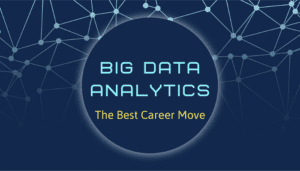In the modern-day, Information Technology has seeped into all sectors. Industries have adopted Data Science and Analytics to drive their work and have reaped the rewards for it. In the paradigm where Data Analysts are highly sought after in all sectors, how do they fare in the field of Healthcare?
Big Data Analytics courses are the perfect way for techies to break into the medical sector. It has become a tool with unlimited potential, and a Data Analytics career in healthcare is a very real and prospective opportunity.
Data Analytics is generally used to draw meaningful interpretations, find trends and predict possible outcomes from Data.
Healthcare Analytics specifically aids in avoiding preventable diseases, conducting an accurate diagnosis, predicting and combating epidemics and coming up with effective treatment strategies for diseases.
A Healthcare Analyst contributes to improving the quality of healthcare and reducing the treatment costs by automating tedious processes.
Applications of Data Analytics in Healthcare
There are many applications of Data Analytics in healthcare, and a career in the field works to implement these uses. Some of the most popular applications are:
Patients’ prediction: Healthcare Analytics can be leveraged to improve patient predictions. The past admission records can be used to discover hospitalization trends, peak times and deploy personnel accordingly.
Strategic Planning: The existing data can be used to identify patterns, conduct studies and map out strategies for extensive care and in community medicine.
Electronic Health Records:
It is one of the most popular uses of Data Analytics in Healthcare. It is used to track patient medications, treatments, progress, and medical history. Data Analytics on these can reveal more details about their medical conditions and lead to more accurate prognoses.
Predictive Analytics: Predictive Analytics is the practice of recognizing patterns and predicting probable outcomes by studying the data presently available. This can be used to improve care delivery for patients with complex medical history by using history to try and predetermine the conditions they may face in the future.
Data Analytics Careers in Healthcare
The applications of Big Data analytics in medicine are vast, and more are being uncovered every day. In this scenario, techies are being welcomed into the sector with open arms. Healthcare employs techies as Data Analysts, Informatics Consultants, Clinical Data Managers in the Quality and Performance improvement sector.
One can also get promoted to leadership positions for other Analysts as Informatics Director or Chief Medical Information Officers. All these positions come with their responsibilities as well as perks. The roles and responsibilities would also entail assistance in the proper integration of data analytics within specific healthcare areas.
Conclusion
A career as a healthcare analyst is a door that opens infinite possibilities. Not only do you get to save lives as a part of the field, but you also get to innovate and change medicine in your way.




 After a course in applied data science with python specialization, you can choose several career paths. Some are stated below:
After a course in applied data science with python specialization, you can choose several career paths. Some are stated below:

 If we go by the general definition of it, the big data is an industry that deals with systematic extraction and storage of information in the form of data from various data points; it also helps to perform complex analysis of extremely large data sets.
If we go by the general definition of it, the big data is an industry that deals with systematic extraction and storage of information in the form of data from various data points; it also helps to perform complex analysis of extremely large data sets. The most important factor why big
The most important factor why big  The number of job posting on some of the reputed job portals has also shown a significant increase from the previous year indicating high growth in the field.
The number of job posting on some of the reputed job portals has also shown a significant increase from the previous year indicating high growth in the field.